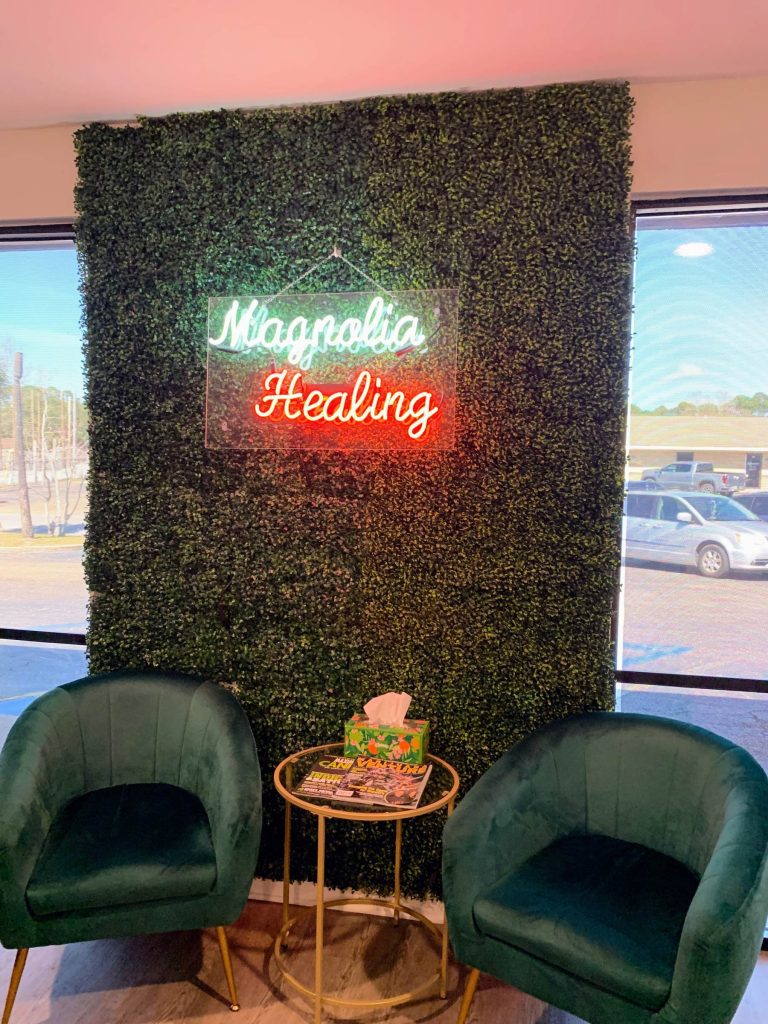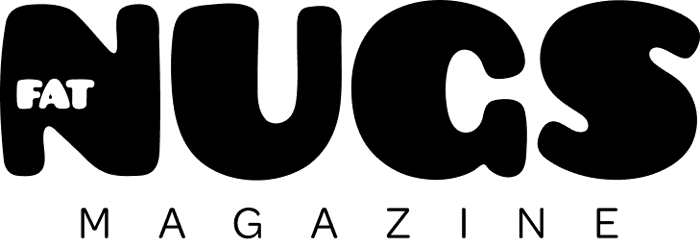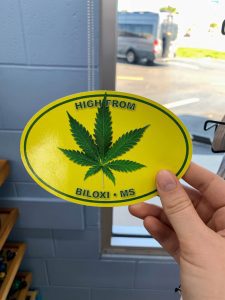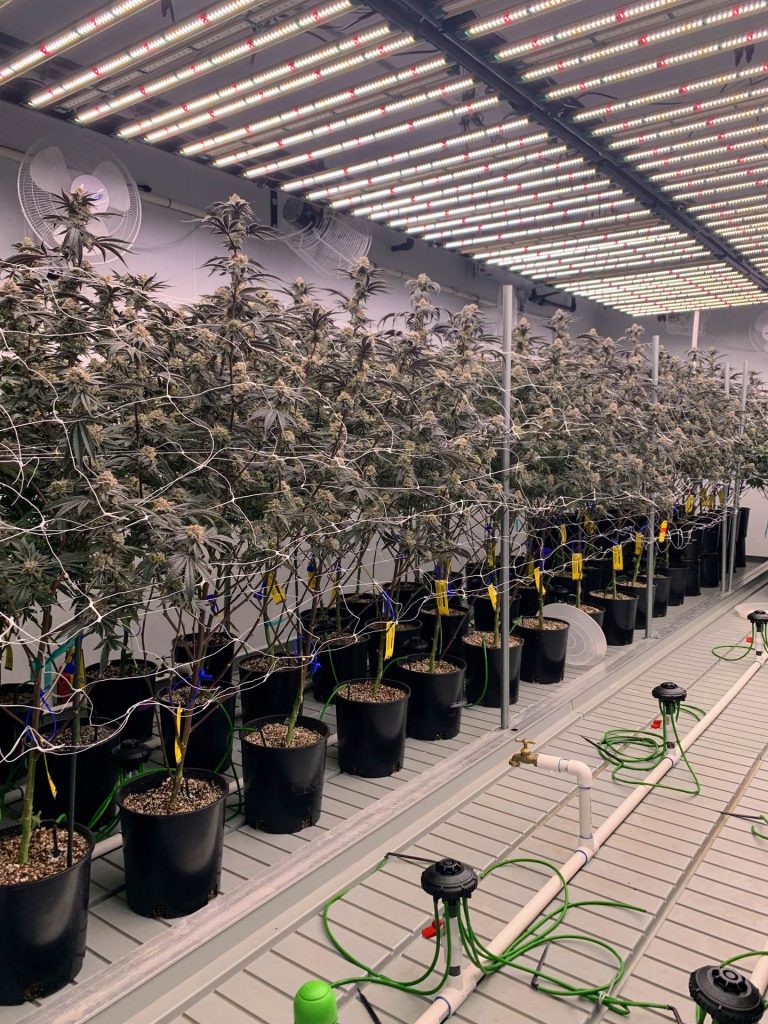Photos Courtesy of Author
When you think of the Deep South, many things come to mind: fried chicken, Spanish moss, and boiling hot summers among them. What doesn’t necessarily come to mind is weed or a robust medical marijuana program.
But the South has several established programs: Kentucky, West Virginia, Arkansas, Florida, Georgia, Alabama, Louisiana, and Mississippi all have existing medical marijuana programs. Some, like the program in Louisiana, exist more in name than execution, with extremely limited license distributions, poor quality, and high prices for a single eighth.
And yet if you said there was no good weed in the South, you’d be wrong. The Mississippi medical program is new (opened in 2023) and small (currently numbers hover around 32,000 enrolled) but to say either of those things equals poor quality product is off-base and rooted in Southern discrimination.
I visited Mississippi in February 2024 blissfully unaware of even the slightest movement towards legality, but when I left the state, I did so with a much deeper understanding of and respect for the Mississippi medical marijuana program.
 Plant Quality Matters
Plant Quality Matters
The Mississippi medical market stands out for many reasons: product quality, high concentration of micro-businesses, and the fact that most of the market is run by Mississippians for Mississippians.
These Mississippians include Evan Dailey, a cannabis consultant and owner of four dispensaries including The Magnolia Healing, where I met him, as well as one processing facility, and one cultivation facility. A lifelong MS resident, Dailey cut his teeth in the cannabis industry in the New Mexico market before returning home to support the new medical market.
Daily says one of the reasons for the market’s initial success is the fighting spirit of the state.
“I love that misconception that Mississippi has bad product quality. Fuck around and come find out what we have!”
It’s well-established that the cannabis plant does not thrive in commercial cultivation. Call it a challenge of scaling or call it Mother Nature’s revenge, but weed plants do better in small grow spaces with more dedicated attention (as we all do, really).
“We have to compete for shelf-space here and if you’re not growing top-tier shit, you’re getting $10 for an ⅛ at wholesale,” Dailey said. “I’ve never seen a market go down on price as quickly as Mississippi. Less than a year for prices to bottom out, and a lot of that is because there’s a limited number of patients and they dictate the price. Larger companies pumped an insane amount of money into massive grow facilities, and they’ve completely saturated the market.”
Another resident who got into this space was Hunter Lewis, the sales director for Pharm Grown Canna Company, who left his home state after college with no intention to return – until he got a call from an old colleague who asked him to help him open a medical cannabis company.
“A lot of that reputation [of poor product quality] is stereotypical,” said Lewis. “Some of it is deserved, but most is based on bias – Mississippi gets a bad rap for a lot. The flower here is as good as anywhere”
In contrast, Chrissy Harrell is a relative outsider to the Mississippi market. The founder of Firefly Growth Solutions and the Head of Sales of Firecraft Cooperative, Harrell hails from Pennsylvania and moved to Louisiana years ago, where she’s a registered medical patient. This proximity to two medical markets at once and the intensive time she spends in Mississippi gives her a unique perspective into the challenges and opportunities here.
“Oh, I disagree wholeheartedly with that [MS has bad weed]. Don’t knock it until you try it!” Harrell agrees. “Year-old corporate weed is very different from fresh, hand-trimmed micro-grown flower.”
Product Information Matters
One of the most challenging things about navigating the cannabis market is the lack of consistent information on products. In California, the most established cannabis market in the US, the only information brands are required to include is the THC percentage – minor cannabinoids and terpenes can be left off entirely.
But these compounds have a big effect on your high experience, and for medical patients, the more information they can get on their products, the better they can curate a beneficial experience, such as one that relieves pain instead of induces anxiety and paranoia.
I’ve traveled to legal cannabis markets in 14 states, and the only constant between them is the THC percentage on the package. I’ve noticed that the newer a market is, the more information the products are likely to have. But even this is not consistent: Maryland displays the THC and CBD percentage as well as terpenes, while New York brands are only mandated to share cannabinoid content.
But in Mississippi, patients have access to an abundance of product information right off the bat. Packages include the THC percentage, CBD percentage, terpene percentage, and terpene breakdown – a major advantage for someone trying to understand the strains that work for their endocannabinoid system.
“It’s refreshing to see the MS market enter year two with an incredible selection of craft and micro cultivators,” said Harrell. “We have a great selection of independent growers and we need to protect that side of the market. Especially when you compare it to the market in Louisiana, controlled majorly by a single corporation and largely considered to be a failure to launch.”
The program has its limitations, as they all do, and potency caps on all product types present a continual struggle for processors and retailers. Flower is capped at 30% THC, concentrates at 60%, and edibles at 60%, with an allowable margin of error of around 10%
But here, patients are actively shaping the market, focusing on education and understanding COAs. Reddit is a popular place to review business and strains, and for companies to get feedback directly from the source.
“The community here, the patients, they’re so eager to learn.” Harrell said. “All you have to do is look on Reddit to see how many discussions they’re having.”
Still, some things are hard to overcome in any market.
“It’s still all about THC,” said Lewis. “A lot of patients don’t understand their own endocannabinoid systems or that everyone’s ECS is different.
 Mississippi Patients: Weed in the Deep South
Mississippi Patients: Weed in the Deep South
Mississippi doesn’t offer reciprocity to medical patients from other states (the ability to use a medical card from one state in another) but it does offer the ability to get a temporary MS medical card.
New regulations allow the state to approve up to two non-resident medical cards per person per year, each valid for 15 days from the date of issuing. This presents an opportunity for businesses to increase their sales in a state where the patient count is limited.
There are a few barriers to growing the patient population here. The first is the limited list of qualifying conditions that a patient can use to get a medical. Patients under 25 are required to visit 2 different doctors before getting a card and there are annual renewal fees – making it cost-prohibitive to join the medical program in the poorest state in the nation.
The other is the pervasive stigma against cannabis. Despite the medical bill passing with 74% of the vote, anti-cannabis attitudes are still strong.
“Some people will leave their town or country so no one sees their car parked at the local dispensary.” said Harrell.
It’s an odd dichotomy of attitudes, but signals a major change coming.
“Mississippi is going to turn the page [on cannabis in the south] in the next few years.”
Tommy Krumland, co-founder of Southern Grown Therapeutics, told me. He runs his cultivation facility with his wife Rachel, their son, and a handful of other employees. Despite a small market currently, Krumland and many other people see a unique bubble of opportunity here.
 A Place for Microgrowers
A Place for Microgrowers
The amount of micro-growers in Mississippi is also, no doubt, one of the reasons for the array of exceptional product quality.
“The big boys want to come in and take everyone else out,” said Dailey, “We have to band together to keep them out.”
Lewis agrees. “The MSOs thought they were going to come in and dominate the market – and they have less than 5%. They’re flooding the market with low-price mids to survive, so the only way for mircos to survive is to grow and process top-tired product. Craft, boutique, whatever you want it call it – it has to be good.”
Harrell attributes this amount of microgrowers to the size of the program. “Mississippi has been off the radar so it’s allowed mom-and-pop shops to become early market entrants. These people are heart-led. When there’s not a lot of dollar signs, the people who are here are here for the right reasons–serving their community.”
The cost of entry in Mississippi is not a small amount. Krumland told me that opening a tier 1 cultivation facility, the next step above micro-cultivators, can cost up to $4,500 but that’s still comparatively cheap when you look at the cost of entry in other states like Colorado, New York, and California.
One thing everyone can agree on is that the MSOs invested too much upfront in the program to be profitable. The major reason is that there’s a hard limit on just how much product the market needs, and all it takes is a simple math equation. Take the patient count, multiply it by their allotted weekly units, and you’ve found the purchase ceiling.
Everyone in the industry would love to see that number grow, but it’s an uphill battle. Proposed amendments to the bill that would make it easier for patients to join failed in early 2024. Harrell blames trying to implement too many changes at once.
What’s Next for Mississippi Medical
What’s next for cannabis in the Magnolia State? Many people have their eye on recreational legalization.
“There’s way too much money invested here for it not to go rec,” says Dailey. “The big 5 MSOs can grow enough weed to support the entire South – there’s just too much weed for the patient count.”
But don’t expect to see that happening soon.
Krumland expects rec legalization to take several years. “It’s gonna be a tough market for a while. The current administration (the Governor) is not a fan of cannabis and he was just re-elected, so I don’t think we’ll see that change for a few years – maybe in the next five years.”
Still, it’s only been a year for the program.
“It will look very different this time next year,” Lewis predicted.




